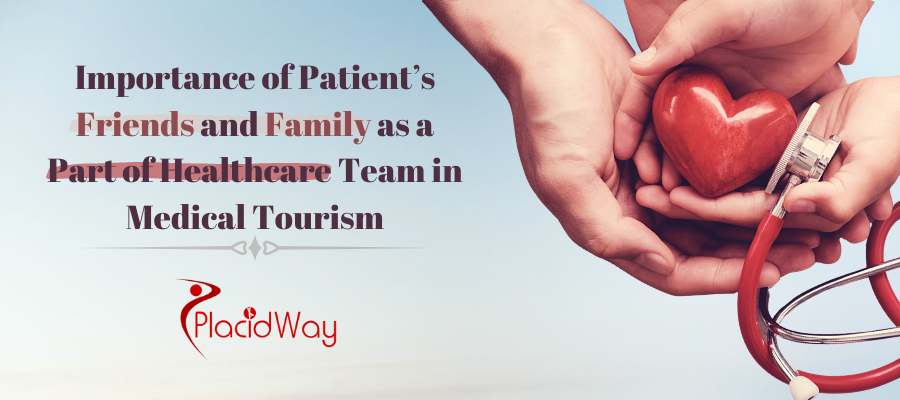In the medical tourism industry, most of the healthcare providers remain focused on attracting patients from around the world with competitive pricing and innovative procedures. Most of them are focused on offering comprehensive patient care, but as the industry grows, the competitiveness of such international patient programs are distinguished by building trust and establishing long-term relationships.
Patient’s friends and family social network plays a big role in any healthcare decision-making process as well as maintaining lifestyle post procedure. Medical travelers always seek guidance, help or suggestions of family and friends for their healthcare needs. Service providers in the medical travel sector must consider this social network as an important part of the healthcare team of patients who:
- Helps in making key healthcare decisions
- Helps in recovery post-treatment
- Helps in aftercare by managing the lifestyle of the patient
Patients’ Friends and Family- Crucial Part of Healthcare System
Friends and family are informal caregivers of patients who play an important role in their healthcare journey. They also play a significant part in how the system of healthcare functions. Patients engage friends and family in their healthy efforts. They simply ask their loved ones to remind or call to take medications or ask grocery buyer in the house to avoid bringing tempting food that can adversely affect health. In this way, the loved ones keep pushing these patients towards healthy choices, which immensely help in the process of recovery and lifestyle management.
For example, a patient, on whom an obesity surgery has been performed recently, needs to steadily maintain a healthy diet and do regular exercise. For such a patient, committing to hitting the gym with a friend thrice a week or having a competition in the family to reach a certain number of steps every day can influence healthy behaviors.
Communicating with Patients’ Friends and Family
Medical travelers always seek the help of family and friends before they decide to book a treatment abroad. That is why the medical service providers must consider them as a part of the healthcare team. Healthcare providers must effectively communicate with everyone involved in patient care by dedicating and understanding the decision making process. They are informal caregivers and can be extremely useful to reinforce the treatment you prescribe or the information you give.
Tips to Communicate with the Patient's Family and Friends
- Establish a point of contact in the family to convey information to other family members and friends
- Using their names and the name of the patient while communicating builds rapport
- Try to establish a connection for building build a sense of trust
- Provide do’s and don’ts pre- and post- procedures to the team
- Educate the team about the pros and cons of the procedure and discuss options available
- Establish clear realistic expectations so that everyone understands and respect the outcomes
- Create a circle of trust with the team
Ask Patient about Patient Caregiver’s Role
However, healthcare providers must honor and protect the privacy of the patient. That is why during the consultation before flying abroad for the treatment or during the treatment, it is important to be assured how the patient sees the caregiver’s role. In many cases, that caregiver can just be a spouse or friend who is just there to reinforce what you say to express the concerns of the patient. It is not wise to assume that such a companion can be included in the healthcare team of the patient. It is essential to check with the patient first. If the patient acknowledges the companion then only that person can be included in the medical encounter. This will build trust and ensure a long-term relationship with the patient.
Benefits of Family and Friends Engagement in Medical Travel Sector
Engaging a patient’s friend/family is not a separate or new initiative in the medical tourism industry. It is rather an essential aspect of what the healthcare providers are already doing for the improvement of safety and quality care.
Engaging patient’s family improves numerous aspects of a healthcare provider’s performance, which includes;
- Patient experience of care
- Safety of patients
- Quality of services
- Patient outcomes
- Employee satisfaction
Overall, the multiple individual advantages of engaging patients and their family/friends in the healthcare team lead to improved performance of healthcare providers, which results in the growth of the medical travel sector.
For more information about medical care abroad for varied procedures click the button below:


.png)
